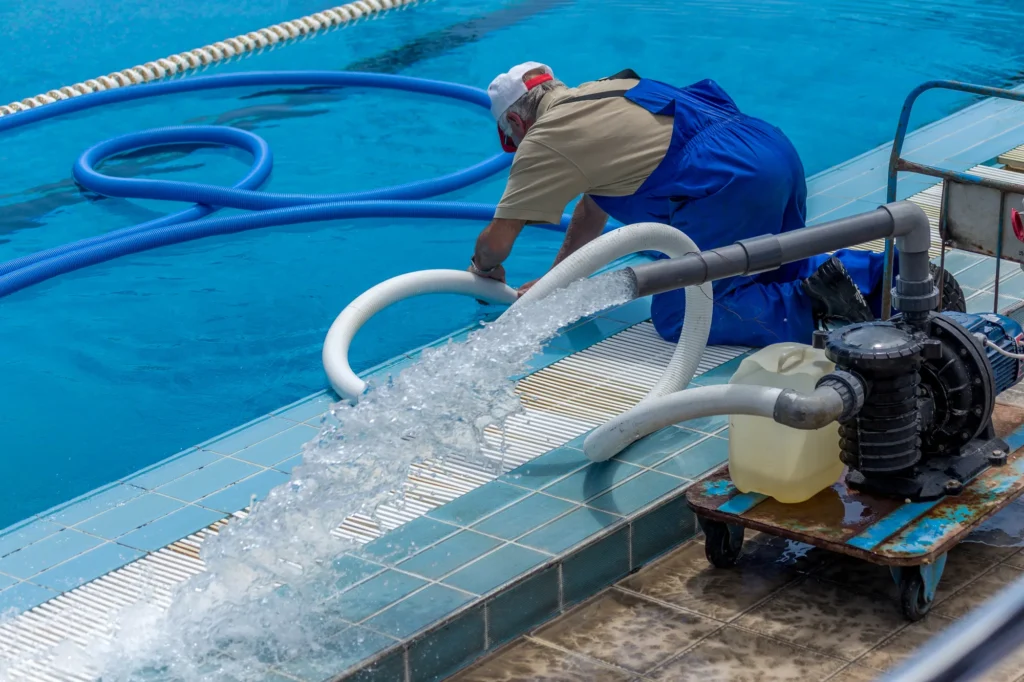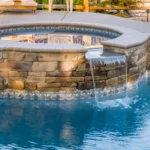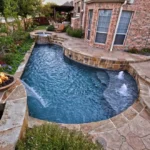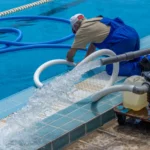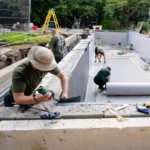Building a pool in Texas comes with unique challenges. From intense summer heat to sudden storms and soil shifts, choosing the right swimming pool materials makes all the difference in durability, comfort, and long-term maintenance. At Rhino Pool Pros, we help homeowners select materials that not only withstand Texas weather but also elevate the beauty and function of their custom pool.
In this guide, we’ll explore the best swimming pool materials, compare their pros and cons, and help you decide what works best for your backyard oasis.
Why the Texas Climate Impacts Pool Materials
Texas is famous for its extreme climate. Hot summers, fluctuating temperatures, and heavy rain can stress pool structures if built with the wrong materials. Using high-quality swimming pool materials ensures:
Resistance to cracking and erosion
Lower maintenance costs over time
Safer, more comfortable pool surfaces
A long-lasting investment that enhances home value
For a deeper look at the overall building journey, see our Complete Guide to Custom Pool Construction.
1. Concrete (Gunite) – A Durable Choice
Concrete, often applied as gunite, is one of the most popular swimming pool materials in Texas. It is prized for:
Durability: Can handle soil shifts common in Houston and surrounding areas.
Design flexibility: Perfect for modern pool designs and custom shapes.
Longevity: With proper care, concrete pools can last decades.
However, concrete requires resurfacing every 10–15 years. Learn more in our post on fiberglass vs concrete pools to see if this is your best fit.
2. Fiberglass – Smooth and Low Maintenance
Fiberglass pools are growing in popularity for their smooth surfaces and lower maintenance. Key benefits include:
Quick installation: Faster than concrete, often within weeks.
Low maintenance: The non-porous surface resists algae growth.
Comfort: Smooth to the touch, great for families.
While they are limited in shape options, fiberglass pools suit homeowners looking for efficiency and reduced upkeep. Compare timelines in our pool construction timeline guide.
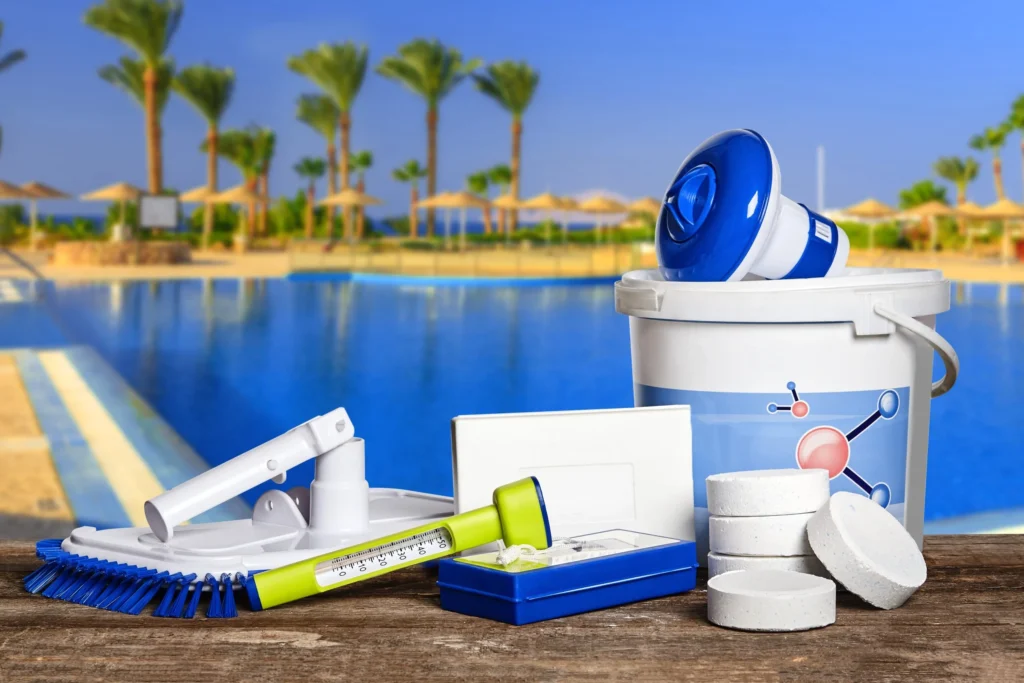
3. Pool Plaster – Classic and Customizable
Pool plaster is a tried-and-true finishing material applied to concrete pool decks and interiors. It offers:
Affordable finishing compared to high-end materials
Custom colors to match backyard design
Resilience when maintained properly
Plaster is especially popular in Houston renovations. Visit our remodels page to see how plaster can revive aging pools.
4. Tile & Coping – Luxury and Durability
Adding tile and coping not only enhances the look but also improves functionality. Benefits include:
Heat resistance – stays cooler under Texas sun
Slip resistance – safer around the pool’s edge
Premium finishes – mosaic and natural stone options
Check out our tile and coping services to explore stunning options for your project.
5. Pool Deck Materials – Function Meets Style
The pool deck plays as big a role in comfort and safety as the pool itself. In Texas, the best pool deck materials include:
Stamped concrete – customizable and budget-friendly
Cool deck coatings – stay comfortable under bare feet
Pavers – durable and stylish for upscale designs
Our pool deck resurfacing services ensure your deck looks new while handling extreme temperatures.
6. Choosing the Right Pool Shape and Material
The material you choose often influences the pool shape. For example:
Concrete allows for freeform or geometric pools.
Fiberglass is usually limited to pre-molded shapes.
Plaster and tile finishes can customize both types.
Pairing the right shape with the right material ensures beauty, comfort, and resilience for years.
7. Energy Efficiency and Long-Term Savings
The right swimming pool materials can reduce energy costs. For example:
Light-colored plaster or tiles reflect heat, keeping water cooler.
Fiberglass reduces the need for chemicals and cleaning.
Concrete coatings protect against cracks that lead to costly repairs.
Want to understand the bigger financial picture? Read our guide on the cost of building a pool in Houston.
8. Building Permits and Material Choices
Even the best material choices need proper approvals. Some finishes or decking options require compliance with city codes. Our detailed post on pool construction permits in Houston explains how materials can impact approval timelines.
Why Rhino Pool Pros is Your Best Choice
Choosing the right swimming pool materials is just the beginning. At Rhino Pool Pros, we bring:
Decades of experience in Houston’s unique climate
A wide range of material options tailored to your budget
Expert craftsmanship in custom pool construction
Financing options through our loan approval form
Ready to build your dream pool? Contact us today for a free consultation.
FAQs About Swimming Pool Materials
Concrete (gunite) is often the most durable choice, as it can handle soil movement and extreme heat, but it requires occasional resurfacing.
Yes. Fiberglass pools resist algae growth, require less maintenance, and stay cooler under direct sunlight, making them a strong choice for Houston.
Pool plaster typically lasts 7–10 years. With good maintenance, it can last longer, but resurfacing helps keep your pool looking fresh and safe.
Cool deck coatings and pavers are excellent choices. They resist heat, reduce slips, and make walking around your pool more comfortable.
Yes. Certain decking or finishes may require additional approvals. Choosing safe, code-compliant materials ensures faster permit approvals.

